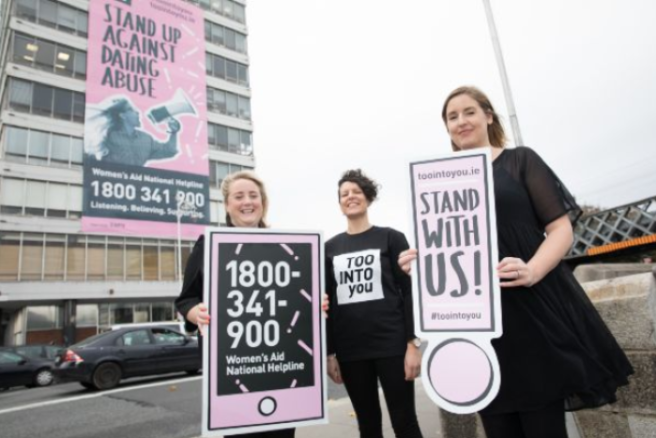
Women’s Aid launch guide for women experiencing dating abuse
Women's Aid have launched a new guide on safety orders for young women who are experiencing abuse in their relationships, due to new laws being introduced.
The legislation brought in at the beginning of this year allows women who are going through dating abuse to apply for Safety and Protection orders.
Women's Aid are instigating the guide on Valentine's Day as part of the #TooIntoYou campaign to emphasise the darker side of love.
60% of abuse starts before the age of 25. Today, on Valentine's Day, we launch our #TooIntoYou campaign for young women including a NEW GUIDE to Safety Orders – now available to people experiencing abuse in dating relationships. Check out the free guide https://t.co/5MKQmB8T9a pic.twitter.com/YSmlMoOGZH
— Women's Aid Ireland (@Womens_Aid) February 14, 2019
RTÉ's Can't Stop Dancing presenter Bláthnaid Treacy is also urging young women and men to "know the signs of dating abuse", especially because 60 percent of abuse in relationships begins before the age of 25.
Women's Aid are a national organisation which provides vital information and support to women experiencing dating abuse and domestic violence. Their #TooIntoYou campaign aims to spread much-needed awareness on the topic.
#TooIntoYou uses social media and poster advertising to strive for the spread of information from February 14 until March 8 (International Women's Day).
New laws brought in at the start of 2019 under the Domestic Violence Act 2018 allow women to apply for important Safety and Protection laws.
Today are calling attention to the darker side of relationships at this time that the #TooIntoYou campaign will have a high impact. We are asking – what part of love is abuse? If you are concerned about your relationship take our quiz and read the signs https://t.co/kLjf4jMVjX pic.twitter.com/Kwjo9WRBU7
— Women's Aid Ireland (@Womens_Aid) February 14, 2019
However, the organisation believes that many young women are still in the dark about the change and how to get the necessary protection, which is why Women's Aid ae bringing in the 'Guide to Safety Orders in Dating Relationships' online today.
Spotting the 10 key danger signs of dating abuse and providing information to combat online stalking and digital abuse is of imperative importance for women in Ireland today.
Margaret Martin, Director of Women’s Aid says:
"1 in 5 women in Ireland experience abuse in relationships and in a national survey on domestic abuse in Ireland, almost 60 percent of those who had experienced severe abuse in intimate relationships first experienced it when they were under the age of 25."
A ten year domestic homicide review was due to be published in February 2017.
NWCI tonight expressed serious concerns about the length of time which was elapsed since the review was announced. We urgently need the findings of this review to be published https://t.co/bs49KdNzkk
— Womenscouncilireland (@NWCI) February 10, 2019
"A stark reminder of this risk is that 1 in every 2 women, aged between 18-25, killed in Ireland since 1996 were murdered by their boyfriends or exes," Martin concluded.
The campaign is being launched on Valentine's Day to highlight the hidden reality of many young women's relationships, despite the fact that today is traditionally associated with love and romance.
Martin's goal for today, is to ask the hard questions; "We are clearly asking – what part of love is abuse?" She spoke directly to victims and survivors; “You are not alone in feeling something isn't right with your relationship."
Visit the #TooIntoYou website here for more information, or call the Women's Aid 24hr National Freephone Helpline at 1800 341 900.
Feature image: Instagram'/@womens.aid














